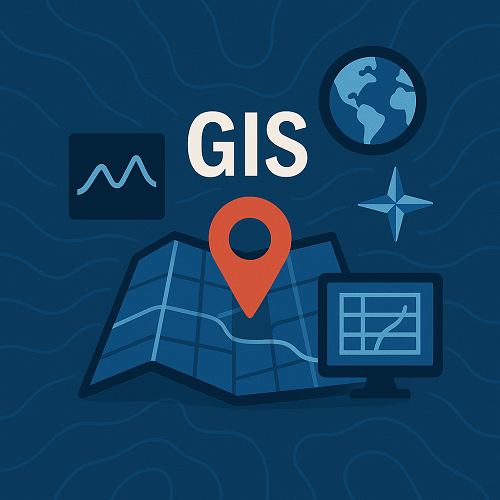Unlocking Innovation with GIS Technology: How it’s Changing Business Processes
Geographic Information System (GIS) technology is transforming the way businesses operate, and it’s no longer a tool just for mapping and location-based data collection. This technology is being used across an array of industries, from healthcare, logistics to environmental management. The integration of GIS technology in business processes has unlocked new opportunities for innovation and operational excellence. In this article, we will explore how GIS technology is changing the way businesses operate.
1. Advanced Analytics
GIS technology leverages location-based data to provide businesses with advanced insights. Businesses can use GIS technology to analyze vast data sets and extract vital information that can inform decision-making. For example, businesses can identify specific geographical areas where their products or services have high demand, enabling them to develop targeted marketing strategies or adjust pricing according to demand.
2. Disaster Response and Recovery
GIS technology can support businesses’ disaster preparedness by providing real-time data on the location and impact of natural disasters such as wildfires, hurricanes, and floods. By using GIS technology, businesses can respond more efficiently by directing resources where they are needed the most. GIS technology can also assist in disaster recovery by analyzing data on the impact of a crisis to speed up the rehabilitation process.
3. Improved Supply Chain Management
GIS technology is revolutionizing transport logistics and supply chain management. By integrating GIS technology, businesses can better track and manage the movement of goods and services across various locations, identifying bottlenecks and optimizing transit times, thereby reducing costs and enhancing customer satisfaction.
4. Property Management
GIS technology is changing the commercial real estate industry by providing new insights into the characterization and valuation of properties. By providing AI-powered insights into property data, businesses can evaluate potential investments and manage their real estate assets more effectively. GIS technology also promotes transparency in the real estate market by providing a 360-degree holistic view of properties.
5. Health Care
GIS technology is changing how health care providers manage and disseminate patient data. By integrating patient location data, medical professionals can monitor and track the spread of diseases. GIS technology also supports clinical decision-making by providing location-based context to help doctors diagnose and treat medical conditions with better accuracy.
In conclusion, GIS technology is unlocking business innovation by transforming the way businesses operate. GIS is no longer just a tool for mapping, but it has evolved to become an essential tool for business analysis, customer engagement, supply chain management, disaster response, and recovery. As businesses continue to integrate GIS technology into their operations, it is expected to bring about even more significant changes in the future.
FAQs:
1. What is GIS technology?
Geographic Information System (GIS) technology is a spatial data analysis tool that combines geographic data and other attributes to provide advanced insights.
2. How is GIS technology being used in the real estate industry?
GIS technology is being used to provide new insights into the characterization and valuation of properties, promoting transparency and efficient management of commercial property assets.
3. How is GIS technology improving supply chain management?
GIS technology supports the transport and logistics industry by optimizing transit times, reducing costs, and enhancing customer satisfaction.
4. What are some of the key benefits of using GIS technology in healthcare?
GIS technology supports clinical decision-making by providing location-based context to help doctors diagnose and treat medical conditions with better accuracy. It can also monitor and track the spread of diseases.
5. What is the future of GIS technology?
As businesses continue to integrate GIS technology into their operations, it is expected to bring about even more significant changes in the future by unlocking new opportunities for innovation and operational excellence.
